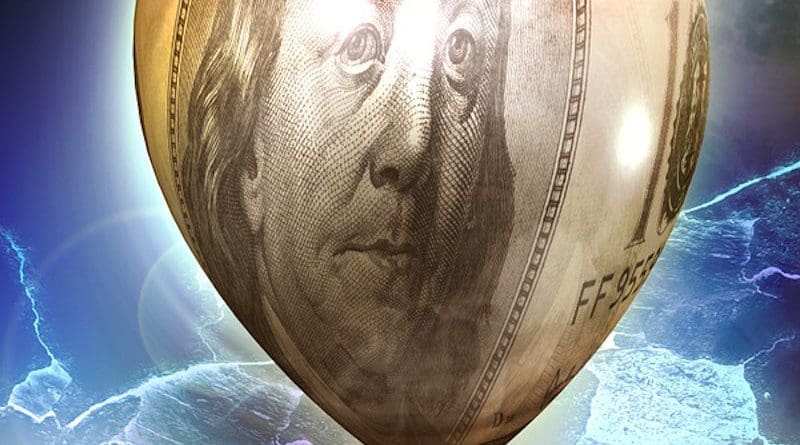Are We Too Distracted To Notice Inflation? – OpEd
The Consumer Price Index was up again in September. The annual rate of inflation, from September to September was 5.4%, and is likely to go higher by year-end. The Federal Reserve claims to have an inflation target of 2%, but seems to be in no hurry to enact policies to slow the rise in prices. Has anyone noticed?
In the past, an inflation rate of 5% would have caused alarm, but there has been a lot going on lately, with controversies related to various COVID policies, the chaotic withdrawal of troops from Afghanistan, President Biden’s big-spending plans, negotiations on the debt ceiling, and hearings on the events of January 6, to mention a few things. Do all these things crowd out concerns about inflation?
This article says many experts expect inflation to moderate in the upcoming months, but the experts cited in this article from a few months back didn’t expect inflation to continue over the summer as it has. Could those experts be wrong again?
The experience of the 1970s shows us that once started, inflation is difficult and painful to stop. Isn’t it better to prevent inflation in the first place rather than trying to stop it once it’s here? Yet policymakers seem unconcerned. They are saying “Move along; nothing to see here,” but as policymakers tell us this spike in inflation is nothing to worry about, I’m not so optimistic.
This article was published by The Beacon


When I was a kid (but mostly I remember from the ’50s and ’60s), annual inflation of 3%-5% seemed normal. The OPEC rise in oil prices, Vietnam war, and strong labor unions resulted in “stagflation” in the ’70s, which led Jimmy Carter, an otherwise very nice man, to appoint Paul Volcker chairman of the Fed. The Chicago School of Economics fell into utter panic, which they haven’t recovered from yet. Volcker used his powers, under a complaisant Ronald Reagan, to destroy the labor movement and drive American industry into bankruptcy, which caused the survivors to ship their factories to China. Since the GFC in 2008 the Fed has been unable to raise the inflation to its “target” (actually ceiling) of 2% without success, so a couple of months of above 2% should not be surprising, especially after the COVID recession. Austrian economice demands utterly unrealistic remedies for economic variations.